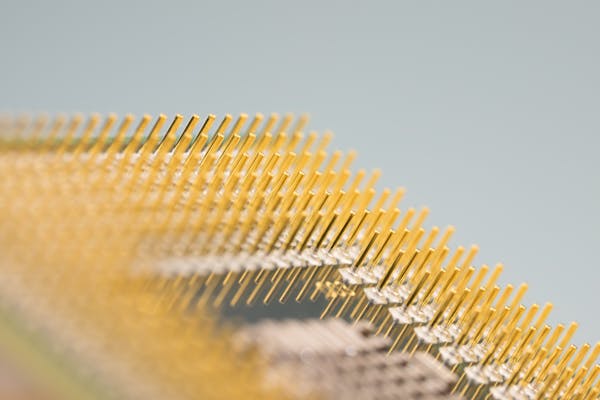
The gaming industry continues to evolve, with each year bringing advancements in graphics, gameplay mechanics, and most importantly, hardware. At the heart of any gaming setup is the CPU, the powerhouse that drives performance and ensures smooth gameplay. With 2024 ushering in a new era of high-performance processors, choosing the best gaming CPU of this year can be daunting. This guide aims to demystify the process, providing a detailed analysis of the top contenders and helping you make an informed decision.
Why the CPU Matters in Gaming
The CPU (Central Processing Unit) is often referred to as the brain of the computer. For gamers, the CPU’s importance cannot be overstated. It handles game logic, physics calculations, AI behavior, and manages the communication between various system components. A powerful CPU ensures minimal bottlenecks, allowing the GPU (Graphics Processing Unit) to perform at its best.
Key Features to Consider
When selecting the best gaming CPU of this year, several key features should be considered:
- Core Count and Threads: Modern games are optimized to utilize multiple cores and threads. A higher core count generally means better multitasking and improved performance in CPU-intensive games.
- Clock Speed: Measured in GHz, the clock speed indicates how many cycles a CPU can execute per second. Higher clock speeds typically translate to faster performance, especially in single-threaded tasks.
- Cache Memory: The CPU cache is a small amount of extremely fast memory located on the processor. It stores frequently accessed data and instructions, reducing latency and speeding up processes.
- Architecture: The underlying architecture of a CPU affects its efficiency and performance. Newer architectures often bring significant improvements in IPC (Instructions Per Clock), power consumption, and thermal performance.
- Compatibility: Ensuring that the CPU is compatible with your motherboard, RAM, and other components is crucial. This includes checking socket type and chipset compatibility.
- Thermal Design Power (TDP): TDP indicates the amount of heat a CPU generates under typical usage. Lower TDP CPUs are generally more energy-efficient and easier to cool.
Top Contenders for the Best Gaming CPU of This Year
1. AMD Ryzen 9 7950X3D
Overview: AMD has continued its tradition of pushing the envelope with the Ryzen 9 7950X3D. This processor leverages the innovative 3D V-Cache technology, stacking additional cache memory on top of the CPU die for increased performance.
Key Features:
- Cores and Threads: 16 cores and 32 threads
- Base/Boost Clock: 4.2 GHz / 5.5 GHz
- Cache: 96MB L3 cache (with 3D V-Cache)
- TDP: 105W
Performance: The Ryzen 9 7950X3D excels in multi-threaded applications and offers outstanding gaming performance, particularly in titles that benefit from large caches. The 3D V-Cache technology provides a significant boost in frame rates for many modern games.
Pros:
- Exceptional multi-threaded performance
- Advanced 3D V-Cache technology
- Competitive price for its performance level
Cons:
- Higher power consumption compared to some competitors
- Requires a compatible motherboard (AM5 socket)
2. Intel Core i9-14900K
Overview: Intel’s 14th generation Core i9-14900K stands out as a formidable contender, boasting impressive single-core and multi-core performance. Built on Intel’s refined 10nm process, it offers high clock speeds and efficiency improvements.
Key Features:
- Cores and Threads: 16 cores (8 Performance + 8 Efficient) and 24 threads
- Base/Boost Clock: 3.5 GHz / 5.8 GHz
- Cache: 30MB L3 cache
- TDP: 125W
Performance: The Core i9-14900K delivers stellar performance in both gaming and productivity tasks. Its high boost clock speeds make it particularly effective in games that rely heavily on single-thread performance.
Pros:
- Leading single-thread performance
- Strong multi-core capabilities
- Backward compatibility with LGA 1700 motherboards
Cons:
- High power consumption and heat output
- Premium pricing
3. AMD Ryzen 7 7800X3D
Overview: Another gem from AMD, the Ryzen 7 7800X3D, brings the benefits of 3D V-Cache to a more affordable price point. This CPU is designed to deliver high-end gaming performance without breaking the bank.
Key Features:
- Cores and Threads: 8 cores and 16 threads
- Base/Boost Clock: 4.3 GHz / 5.0 GHz
- Cache: 96MB L3 cache (with 3D V-Cache)
- TDP: 105W
Performance: The Ryzen 7 7800X3D offers excellent gaming performance, particularly in titles that are optimized for AMD’s architecture and benefit from the large cache. It strikes a balance between price and performance, making it an attractive option for many gamers.
Pros:
- Affordable 3D V-Cache technology
- Strong gaming performance
- Efficient power consumption
Cons:
- Limited to 8 cores, which may impact performance in some multi-threaded applications
- Requires AM5 motherboard
4. Intel Core i7-13700K
Overview: The Intel Core i7-13700K is an excellent mid-range option for gamers who want high performance without the premium price tag. This CPU combines strong single-core and multi-core performance, making it versatile for both gaming and productivity.
Key Features:
- Cores and Threads: 12 cores (8 Performance + 4 Efficient) and 20 threads
- Base/Boost Clock: 3.8 GHz / 5.4 GHz
- Cache: 25MB L3 cache
- TDP: 125W
Performance: The Core i7-13700K provides robust gaming performance, handling modern titles with ease. Its combination of Performance and Efficient cores allows for excellent multitasking and responsiveness.
Pros:
- Balanced price-to-performance ratio
- Strong gaming and productivity performance
- Compatibility with LGA 1700 motherboards
Cons:
- Higher power consumption compared to AMD counterparts
- Requires efficient cooling solution
5. AMD Ryzen 5 7600X
Overview: For budget-conscious gamers, the AMD Ryzen 5 7600X offers impressive performance at a lower price point. This CPU is an excellent choice for those looking to build a cost-effective gaming rig.
Key Features:
- Cores and Threads: 6 cores and 12 threads
- Base/Boost Clock: 4.7 GHz / 5.3 GHz
- Cache: 32MB L3 cache
- TDP: 95W
Performance: The Ryzen 5 7600X delivers solid gaming performance, particularly in games that are less CPU-intensive. Its high boost clock speeds ensure smooth gameplay, and it performs well in a range of applications.
Pros:
- Affordable price
- Strong single-thread performance
- Efficient power consumption
Cons:
- Limited to 6 cores, which may impact future-proofing
- Requires AM5 motherboard




